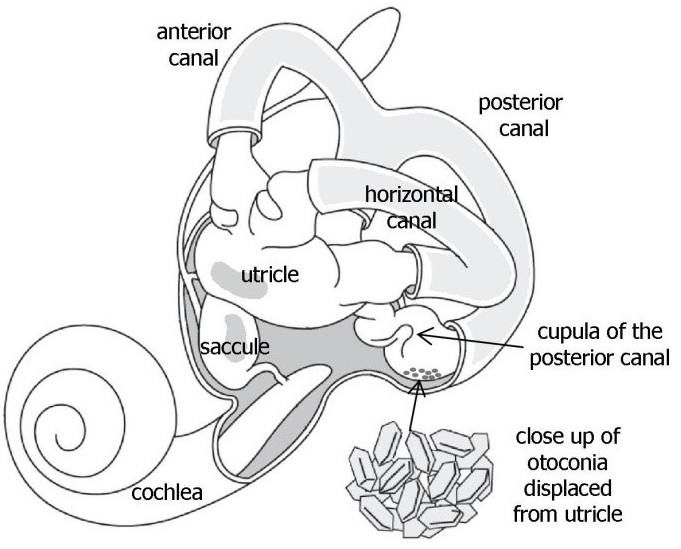
Benign Paroxysmal Positional Vertigo is two things; very difficult to say quickly and the most common vestibular disorder.
It is characterised by a false sensation of spinning and is occasionally accompanied by a person’s breakfast coming back up!
The disorder’s name is worth unpacking:
- Benign meaning that it is not life-threatening
- Paroxysmal referring to its tendency to come in (relatively) brief bursts
- Positional as it is typically brought on by specific head movements or positions
- Vertigo is the feeling of the room spinning when it shouldn’t be, for example when you get out of bed.
We’ll stick to the acronym from now on!
BPPV is a reasonably common condition, particularly for seniors. People will typically be quite distressed initially, fearing a sinister issue such as a stroke and physically unable to complete their usual activities of daily living. They will often present to their GP or perhaps to a hospital emergency department, but not as often to a physiotherapist!
BPPV is a mechanical issue of the inner ear. In particular it involves otoconia, or crystals, being dislodged into the semi-circular canals which allow us to sense the motion of our head in space. Incorrect signals are then sent to the brain, producing vertigo. Put simply, BPPV occurs when crystals in the inner ear fall into the wrong place.
Which doesn’t sound much like a “physio problem” does it?
Although awareness is increasing, it is still to most people’s surprise that many physiotherapists can in fact treat BPPV. Treatment generally involves the Epley’s manoeuvre, a series of assisted movements on a bed, which takes a few minutes. The aim here is to get the troublesome crystals back in the correct spot. Advice on how to manage the condition at home and often simple home exercise prescription is also important. A quick recovery can be expected, much to the patient’s relief! Any concerns on the physiotherapist’s part will be communicated to the patient’s GP.
Always remember that information such as this is simplified and does not substitute for a professional opinion. Should you experience dizziness or any other concerning symptoms you should seek the opinion of a qualified health professional.
Keep your physio in mind as they may be able to help. If in doubt, just give us a ring or book in with either Nicholas Ballam or Caitlin Bayley and they will be happy to help you out.